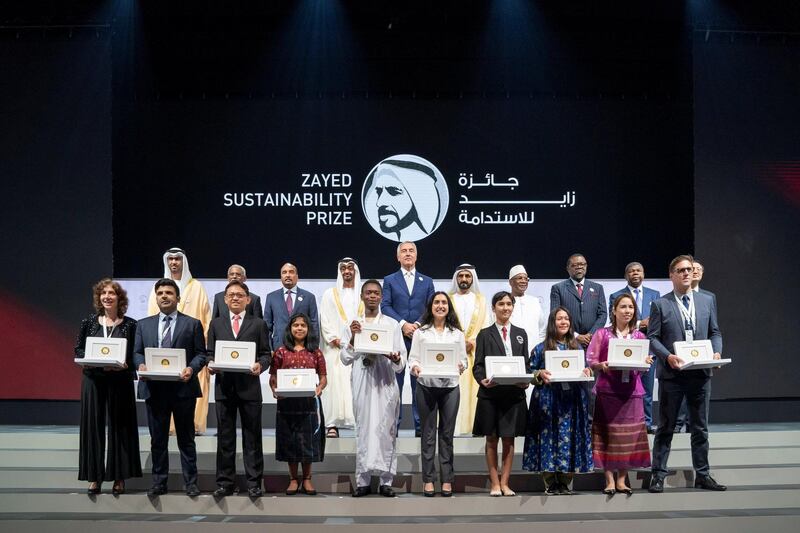In Tajikistan, a young child studies by the light of solar energy, generated by a school project with ambitious plans to supply the whole neighbourhood. In the Philippines, high school students develop a sunlight-powered micro-farm, cultivating algae as a biofuel. And in South Africa, pupils create a machine for converting waste water to drinking water, part of a project to stimulate sustainability initiatives across the entire continent.
All these innovations and more were winners in the global high schools category of this year's Zayed Sustainability Prize – each proof that the ingenuity of young minds is a resource that can and must be tapped into if the future of the planet is to be secured. Each of the six prizewinning ideas developed by schools, as well as the winners in categories ranging from health and food to energy and water, are as ingenious as they are practical. But while each will contribute much to the communities they live in, the ultimate achievement of the prize is raising global awareness, not only of the daunting problems facing the planet but also of the human capacity to invent and innovate to find solutions. In this, as the prize recognises with its schools category, the recruitment of young minds and the empowerment of youthful potential is essential. This is a philosophy at the heart of the UAE's ongoing preparations to meet the challenges of tomorrow, as set out in these pages by Dr Ahmad Belhoul Al Falasi, the Minister of State for Higher Education.
This year a record 295 schools competed in the competition. Since its introduction in 2012, the schools category has captured the imagination of more than 3,270 students around the world, whose innovative schemes have had a sustainable impact on the lives of 350,000 people. Now in its 10th year, the prize is a global flagship initiative. But every school project, every family that commits to recycling its waste, every parent and teacher who leads by example, has a vital role to play in shaping the attitudes of a generation upon whom our planet is now depending.
As inheritors of a world their elders have left in a precarious state, the young are ambassadors for the future. The tentative message of hope relayed by the prize is that, provided the power of youthful passion and ingenuity is properly nurtured, that future is in good hands.






